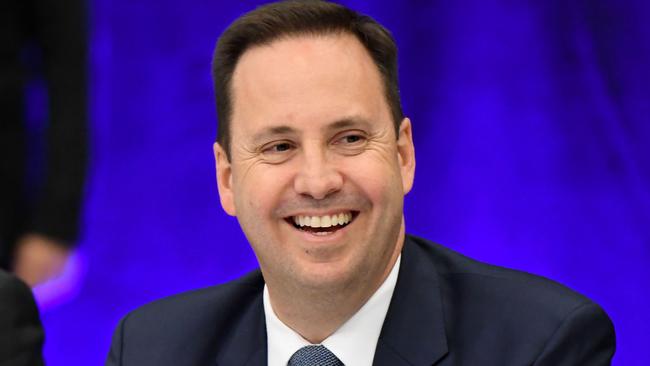Trade win after Trans-Pacific Partnership deal sealed
The TPP trade pact has finally been sealed, with the historic 11-nation deal set to come into effect by March.

The Trans-Pacific Partnership trade pact has finally been sealed, with the historic 11-nation deal set to come into effect by March following lobbying efforts by Japan and Australia to convince a reluctant Canada to sign back on to the agreement.
The multi-trillion-dollar trade agreement was finalised overnight in Tokyo, resurrecting a deal that was thought to have been killed off when Canada sabotaged negotiations in November by failing to attend a final vote at the APEC conference in Vietnam that would have ratified it.
The deal will lock in greater trade access for Australia to markets estimated to be worth almost $14 trillion.
Australia and Japan have been central to efforts to salvage a Pacific Rim agreement from the original 12-nation TPP, which was signed by all nations including the US in 2016. US President Donald Trump dumped the deal soon after taking office.
The regional free-trade deal between the original 12 countries represented about 40 per cent of the global economy and a quarter of world trade.
Australia’s exports of goods and services to the 11 countries in the deal were worth nearly $88 billion in 2016-17, amounting to almost a quarter of Australia’s total exports.
The TPP aims to open substantial new trade and investment opportunities, create jobs, integrate economies and promote and facilitate regional supply chains.
Trade Minister Steve Ciobo, who is in Davos at the World Economic Forum, confirmed to The Australian last night that a final agreement had been reached, with official signing of the deal expected in March.
“This is terrific news for Australia,” Mr Ciobo said. “It has reinforced why the Turnbull government made it a key priority. Canada is ready to come on board and we are looking to have all 11 countries officially sign up to TPP in March.
“For Australia, this means new trade access to Canada and Mexico and greater access to Japan as well as other countries.’’
Mr Ciobo said Australian businesses would be big winners, as the new pact would eliminate more than 98 per cent of tariffs in a free-trade zone with a combined GDP of $13.7 trillion.
New free-trade agreements with Canada and Mexico would come into force while tariffs would be eliminated under the pact from sheep meat, cotton, wool, seafood, horticulture, wine and industrial products. The beef industry, which had exports to Japan worth $1.9bn in 2014-15, would benefit from accelerated reductions in the Asian nation’s import tariffs.
New quotas for wheat, rice and sugar to Japan, Canada and Mexico would apply and the agreement would deliver legally guaranteed, improved conditions for Australian services products, which were worth more than $18bn in 2016-17.
Mr Ciobo said the agreement was a political embarrassment for Bill Shorten, who has been opposed to the deal. “Labor and Bill Shorten declared this trade agreement dead and wanted to walk away,” he said. “If it was up to them they would shut Australia out of this historic agreement and the big wins to deliver our farmers, manufactures and services providers.”
It is understood Canada returned to the table in the past few days following intense lobbying and offers of minor concessions on “cultural issues”, including protections for French-language media in Canada. Agreement was reached by officials from all 11 nations in Tokyo, with joint recommendations to be made to their respective trade ministers. An announcement was due to be made in Tokyo last night. The 11 Pacific Rim countries are Australia, Brunei Darussalam, Canada, Chile, Japan, Malaysia, Mexico, New Zealand, Peru, Singapore and Vietnam.
Another concession to Canada is believed to have included the renaming of the TPP11 to the Comprehensive Progressive Agreement for Trans Pacific Partnership.
The TPP was a key component of the Obama administration’s Asia policy, but Mr Trump fulfilled a campaign pledge by pulling out of the pact.
Mr Ciobo had been central to efforts with Japan to keep an agreement alive following the 2016 APEC meeting in Peru. However, when Canadian Prime Minister Justin Trudeau failed to attend a crucial leaders’ meeting at the G20 meeting last November in Danang, the deal was thought to be dead for a second time.




